
When you’re out driving, a shaking steering wheel can be irritating. However, it can also be a great way to get an early heads up on problems with your car. Some of the most common causes are likely to be warped discs, causing shakes under breaking, or poorly balanced tyres resulting in shaking under high speed.
There are of course more serious issues with your car that can be revealed by shakes through the steering system. Which signs need a little attention, and how can you spot the serious red flags that mean you need a little hand investigating further?
Table of contents:
- Shaking When You’re Driving
- Shakes When Turning
- Shakes When Driving Slowly
- Shakes Under Acceleration
- Shakes When Braking
- And Finally
Shaking When You’re Driving
Does the wheel start to vibrate when you’re out on the open road? Different situations can help you identify the causes of the shakes:
Unbalanced Tyres
Symptom: the shakes start when you reach speeds over 50mph, and become most notable around 60mph.
The cause: replaced your tyres recently? They might not have been balanced properly. Or knocks and bumps – you’ll probably remember them – have thrown the wheels out of alignment. Weights are used to balance your wheels, and shocks tend to throw them out of place or even fall off.
The remedy: inspect your wheels for missing weights, tread disparities and bent rims to confirm your suspicions. Make sure your tyres have been balanced properly. As a rule of thumb you should be getting an alignment check every time you change your oil, or around 3k-6k miles.
Misaligned Tyres
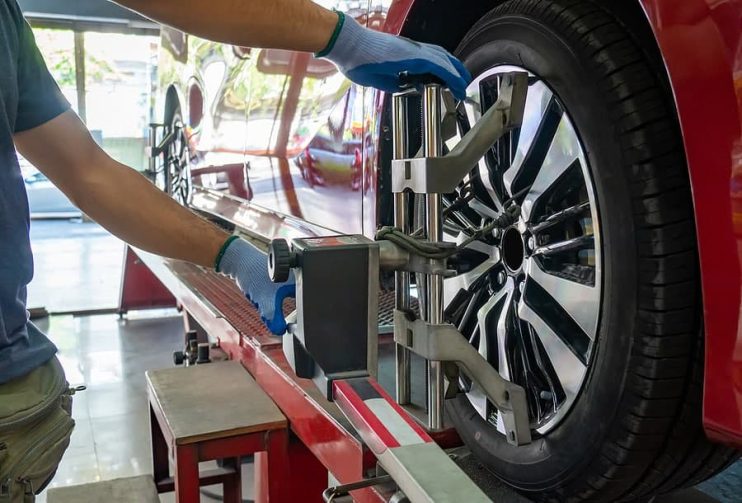
Symptom: Car starts to pull to one side when your driving in a straight line. You might also notice that there is uneven wear to the tyre tread on either side of the car.
The cause: hitting pot holes and flying over speed bumps. Anything that’s put undue pressure or stress on the front wheels can shock them out of place. If you have recently had the car’s suspension altered, and not had an alignment check, then this could be the cause of the issue.
The remedy: an alignment check should sort things out – as with unbalanced tyres. However if this doesn’t resolve the issue, it’s worth getting your suspension inspected too.
Low Tyre Pressure
Symptom: you might notice that your car is not only experiencing steering wheel shakes, but there’s you’re also having to stop and refill the car more frequently, and your miles per gallon seems to have dropped.
The cause: low tyre pressure means that you’re tyres are no longer addressing the road in the optimal manner, costing you fuel efficiency.
The remedy: check your owner’s manual to find out the correct tyre pressure, then take your car to your local filling station where they should have a digital pump. This allows you to check the pressure and refill the tyres with compressed air, if they’re suffering from low levels.
Brake Calipers
Symptom: the shaking gets worse at high speed. You can also smell a certain kind of burning smell on the road, and the cars handling under acceleration seems diminished.
The cause: sticking calipers can be rubbing against the brake discs – although this is quite rare. It’s more likely that debris or material has been caught around the discs or pads.
The remedy: any foreign material should be easily cleared. If this doesn’t solve the issue, then take your vehicle into the garage for a check-up.
Shakes when Turning
If your vehicle is fine when addressing the straight road, but starts to vibrate and shake when you come into a bend, this could be your issue:
The symptom: you’ll notice that the shakes start when you slow down and corner. This is the least likely shaking situation you’ll experience. Noises coming from the wheel that increase in volume when accelerating, together with loose steering, may also accompany this issue.
The cause: loose wheel bearings will set off vibrations in the wheel when you’re turning the car. Over time these bearings need replacement, much like your brake pads, and must have sufficient lubrication to work properly.
The remedy: raise the vehicle and grab the tyre at the top and bottom and push it in a rocking motion. Any grinding sounds or excessive movement are signs that the bearing is damaged. Take the car to a mechanics as damaged bearings can often seize out on the open road, which could result in a dangerous situation as your front wheels lock.
Shakes When Driving Slowly
Some systems in your vehicle show issues at slower speeds – indicating problems with the suspension.
The symptom: you may only notice the steering wheel shaking when the car starts, or is only moving under very slow speeds. This could be accompanied by problems with the vehicle’s stability and a certain amount of looseness and play in the steering.
The cause: over time suspension components simply wear out and fail to cushion you from bumps and bangs.
The remedy: a simple visual inspection of the upper and lower ball joints, tie rod ends and bushings should reveal whether there are any issues. You can also try the push test on the front of the car. Depress the bonnet and it should bounce back to its stationary position in roughly 1.5 bounces.
Shakes Under Acceleration
In very rare situations you could find that shakes occur when you put the pedal to the metal.
The symptom: you’ll notice the steering wheel shaking any time you put your foot down – and it may get worse to the point where the whole vehicle is shaking.
The cause: issues with the engine running from air induction, fuel delivery or even inconsistent spark plug timings can cause the car to stop running smoothly, resulting in a distinct vibration coming from the engine compartment.
The remedy: if you suspect any issue with the engine, get to the mechanics immediately as this is a major red flag.
Shakes When Braking
You’ll notice these shakes when you start to apply the brakes, in order to cut your vehicle’s speed.
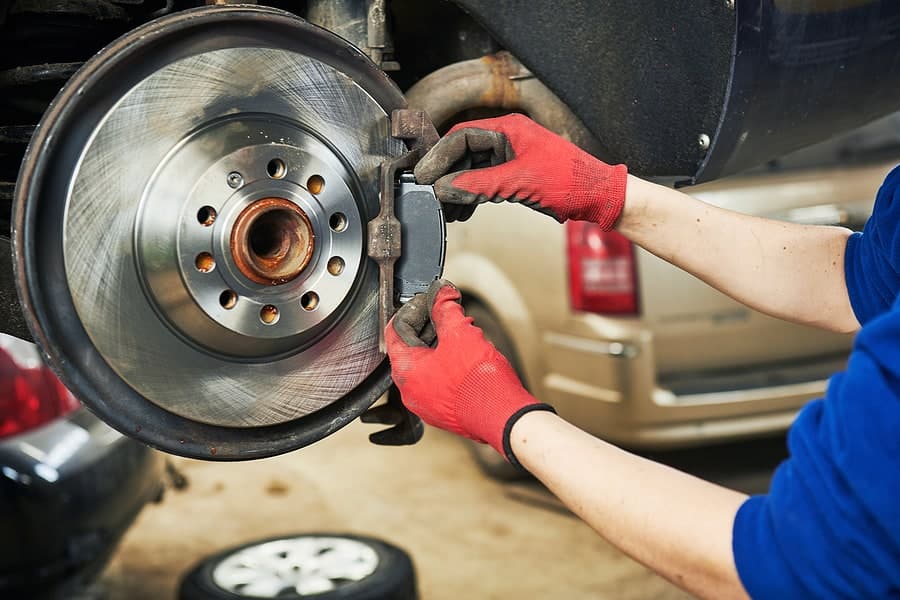
The symptom: you’ll notice the steering wheel shakes as soon as the brake pedal is applied, which can be worse when engaging the brakes at higher speeds. Alternatively, you could find that the shakes are occurring from the moment you start the car – which could be due to problems with the handbrake.
The cause: most vibrations will be caused by a problem with the brake disc. It could be that the disc has become warped through use and overheating, that there’s a thickness issue, or that the part has simply run out and it’s time to buy replacement brake discs.
The remedy: the last thing you want when you’re out on the open road is a brake failure. As soon as you become aware of any issue with the brakes, give them a quick inspection – this should tell you if you need new discs. And if the problem is still happening, then you can go down to the garage, to get them checked out by the pros.
And Finally
As with all car issues, don’t ignore them if they start to become a regular occurrence. All cars have shakes and minor trembles now and then, but remember that early identification of a problem can often stop knock on issues. For the best results, as soon as you’re aware that something’s up – then get down to the mechanics.

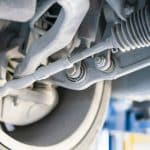


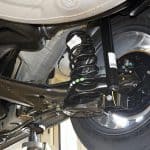

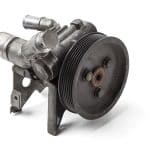
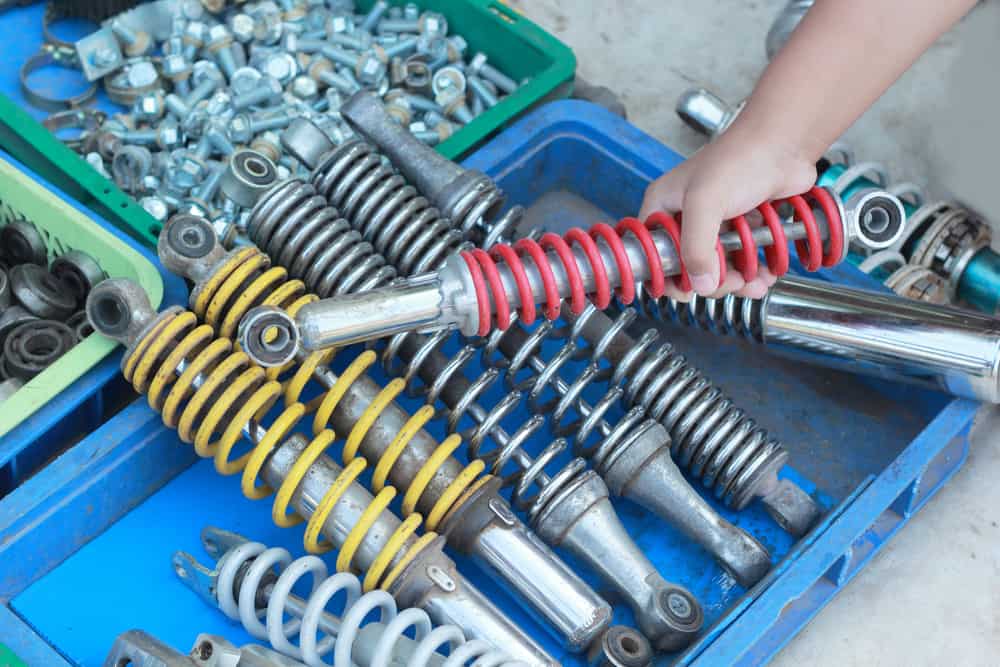

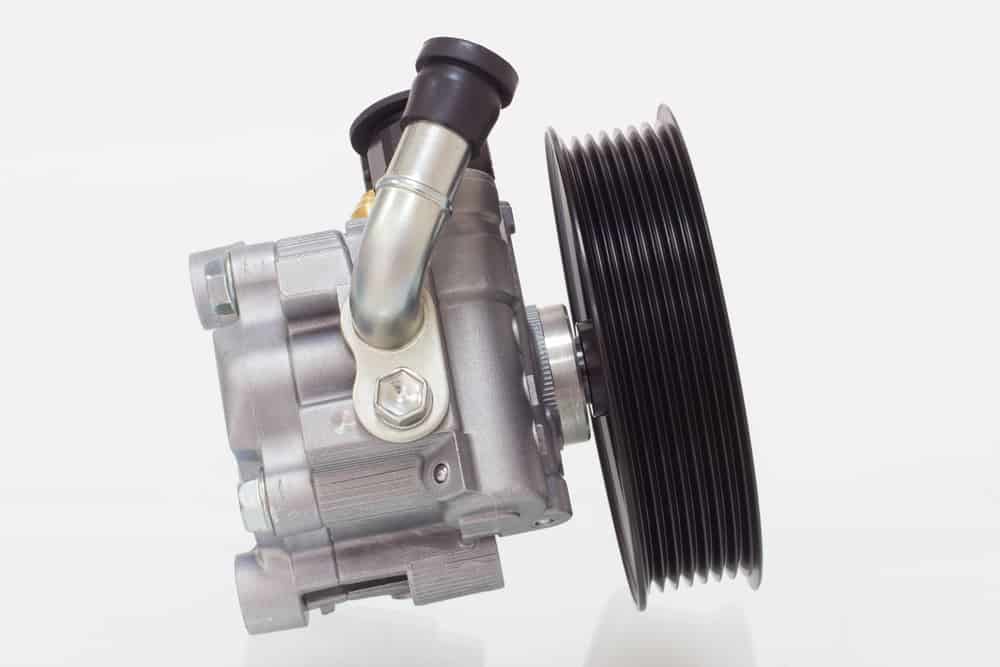
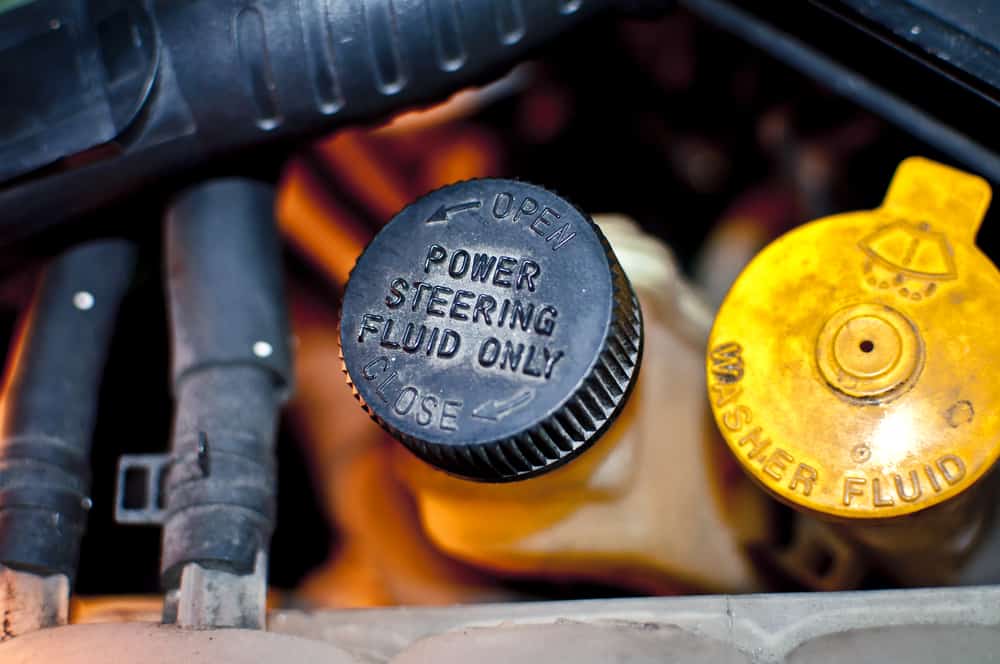
.png)